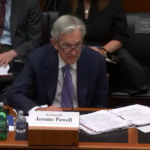A new report has revealed that economic and financial experts have quickly panned the idea of a 50-year mortgage. Federal Housing Finance Agency (FHFA) Director Bill Pulte said Saturday that the Trump administration was working on a plan to introduce such a measure.
“Thanks to President Trump, we are indeed working on The 50 year Mortgage —a complete game changer,” Pulte wrote on X.
While the Administration has looked on such a proposal positively, many others see all kinds of problems with such a change.
Extending mortgages from 30 to 50 years might seem like an easy way to reduce monthly payments, but the data tells a different story,” said Sandeep Shivam, product leader for Tavant. Borrowers end up paying nearly twice the interest, while only seeing about a 20 percent improvement in their loan eligibility. The much longer repayment period significantly delays the accumulation of home equity, resulting in less favorable business metrics and increasing the risk of default as borrower behavior starts to deviate from conventional models. From a tech and risk-modeling perspective, this adds layers of complexity.
Tech Challenges and Long-Term Debt Risks
AI-powered underwriting models, property analytics, and long-term risk forecasting systems find it challenging to accurately predict outcomes over such an extended period. Without robust digital infrastructure to monitor borrower patterns and market changes continuously, a 50-year mortgage could introduce hidden risks for lenders and ultimately impose a greater financial burden on borrowers.”
“A 50-year mortgage may reduce a borrower’s monthly payments, but it doesn’t make buyers more competitive in today’s market,” added Tushar Garg, CEO of Flyhomes. “Sellers still prioritize speed and certainty, which is why nearly 30% of homes are purchased with all-cash offers. In addition to paying far more in total interest, extending a loan to 50 years delays building equity, which can leave buyers financially strapped for decades. Lengthening the loan term may help first-time buyers with affordability. But for current homeowners, structuring an all-cash offer, even if it is ultimately financed later, can be a smarter way to land their dream home.”
Fifty years for many new homeowners is effectively a lifetime mortgage that could last well into their retirement, noted Bobbi Rebell, a certified financial planner at BadCredit.org. “Many potential home owners may be drawn to a 50-year mortgage because the monthly payments will be substantially cheaper. However, there is a cost to that, and it will be no bargain in the end. Borrowers will end up paying much more in interest, especially at the beginning of the term of the loan because the interest is front-loaded.”
A longer term for a mortgage is not the type of solution that should be considered to help more prospects qualify for a loan, adds Marc Halpern, CEO at Foundation Mortgage “Rather than adding decades to a loan, we should be focusing on smarter underwriting options that reflect how Americans actually earn and manage their income today. Alternative documentation programs — such as bank statement or 1099 loans — can help qualified borrowers achieve homeownership responsibly, without turning a mortgage into a lifelong obligation. “Homeownership should be a path to freedom, not a 50-year burden.”






